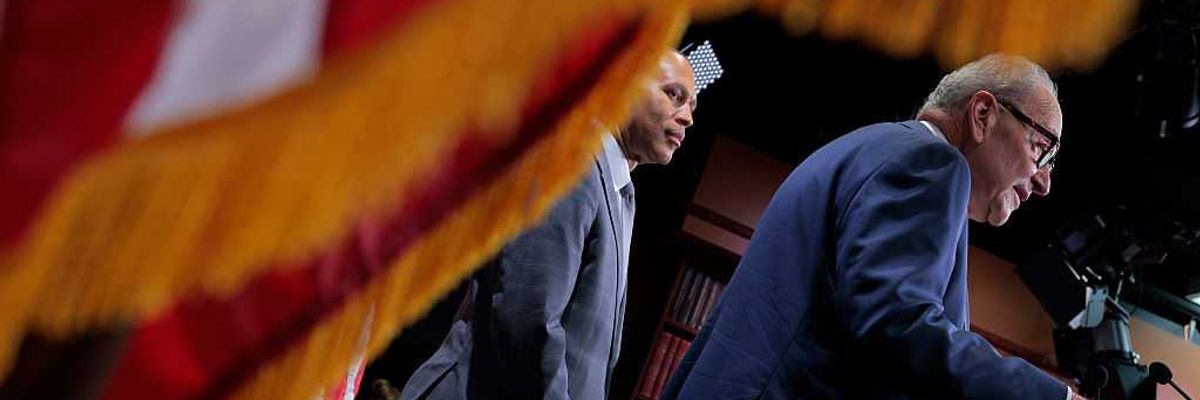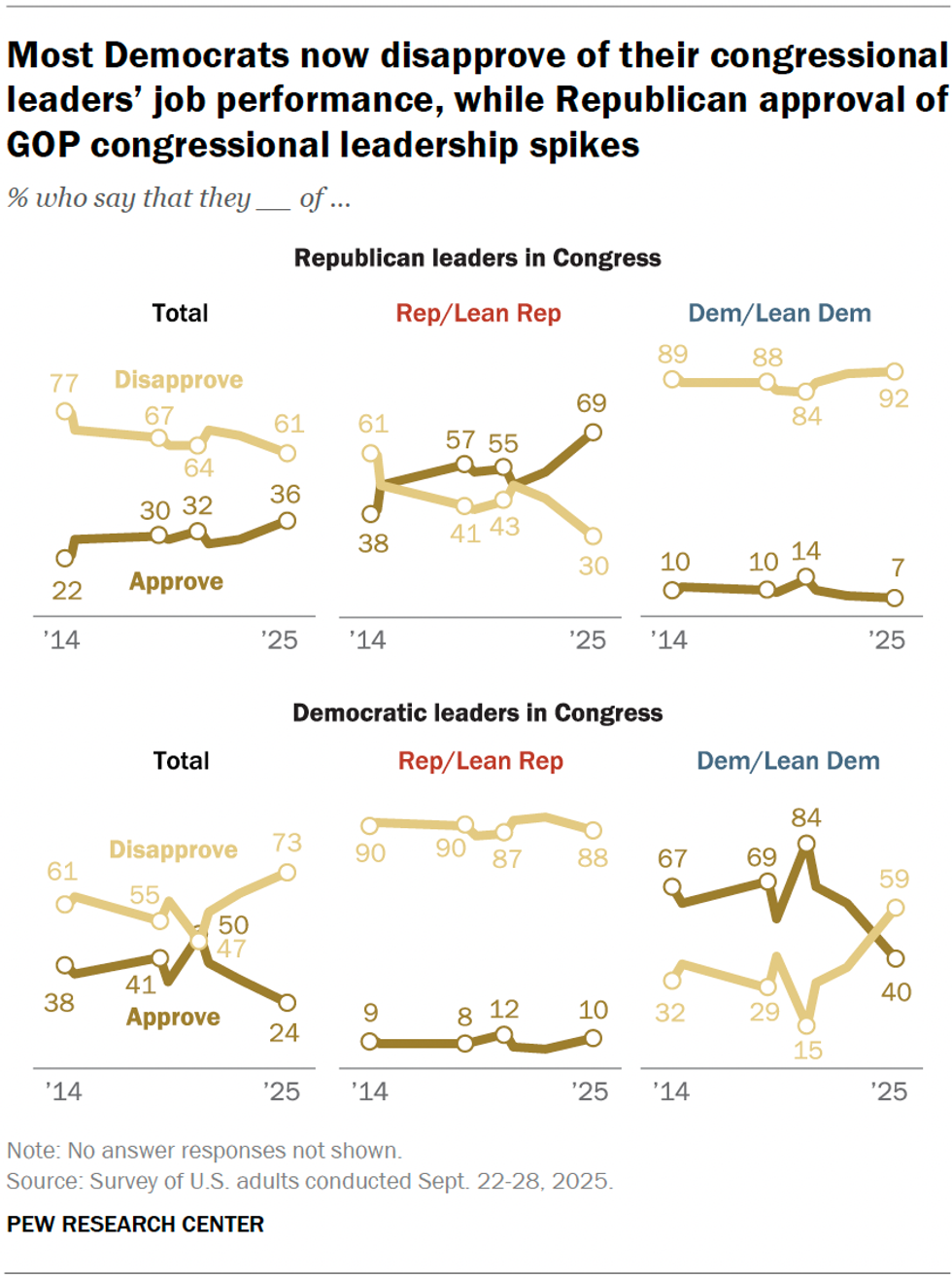For the first time in at least a decade, a strong majority of Democratic voters now say they disapprove of their party's leadership, according to a new poll.
The survey published Tuesday by Pew Research shows that an astonishing 59% of self-identified Democrats said they disapproved of the performance of their party's leaders in Congress, compared to just 40% who approved.
It is the first time since Pew began asking the question in 2014 that more Democrats have said they disapproved of leadership than approved of it. The last time the question was surveyed, the numbers were basically reversed: 61% of Democrats approved while just 37% disapproved.
 (Graphic: Pew Research Center)
(Graphic: Pew Research Center)
Democrats have particularly soured on Senate Minority Leader Chuck Schumer (D-NY). In May 2024, when Democrats still held the chamber and Joe Biden was still president, 47% of Democratic voters had a favorable view of Schumer compared to just 26% who were unfavorable. Now, his approval has fallen to just 35%, while 39% of Democrats now say they disapprove of his leadership.
Voters have extended a bit more grace to House Minority Leader Hakeem Jeffries (D-NY), who still enjoys 41% approval compared with just 20% disapproval among Democrats. Though 39% say they've never heard of him.
Following the loss of former Vice President Kamala Harris in the 2024 election and the subsequent return of President Donald Trump, many Democratic voters have expressed displeasure at what they view as the leadership's failure to stand up to an increasingly lawless and authoritarian president.
This was perhaps best encapsulated by the overwhelming backlash Schumer faced in March after he voted to help Republicans advance a funding bill that expanded Trump's ability to override Congress' control over spending. In the latest shutdown fight, many progressives expressed fears that Schumer would "cave" once again.
Despite his warmer approval rating, Jeffries has not been insulated from criticism either, with commentators and activists growing increasingly frustrated by his tendency to respond to Trump's abuses of power with little more than "strongly worded letters."
A Reuters/Ipsos poll of nearly 1,300 Democratic voters released in June showed that nearly two-thirds believed that “the leadership of the Democratic Party should be replaced with new people."
Policy was at the core of the disagreement: While voters overwhelmingly expressed support for populist agenda items like universal healthcare, affordable childcare, and higher taxes on the rich, many of them—especially younger voters—expressed skepticism that party leaders shared those priorities.
Nick Field, a correspondent for the Pennsylvania Capital-Star, observed that "Democratic approval of their congressional leadership now resembles Republican approval of their congressional leadership in 2014, which historians might remember as the year before Donald Trump took over that party."
At that time, congressional Republicans languished with just 38% support from their voters while Democrats remained largely happy with theirs.
In 2025, the roles have essentially reversed. Republicans now have historic reverence for their leaders, with a record 69% approval for the duo of House Speaker Mike Johnson (R-La.) and Senate Majority Leader John Thune (R-SD).
The progressive journalist and founder of The Lever, David Sirota, said the fact that Democratic voters now have their pitchforks out for leadership "is good."
"These are conditions for real change," he said. He noted that there have been previous times when he believed such a change was possible, including 2007, when public opinion had turned against a newly Democratic-led Congress that had struggled to counter then-President George W. Bush.
"That might have been the moment for real change, but the problem was Democratic voters still worshiped their party leaders," Sirota said. "We're at a similar moment now, only Democratic voters are mad at their leaders now. Good."





 (Graphic:
(Graphic: